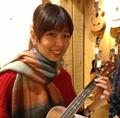“We are blessed to live in the countryside”: Unpacking Rural and Small-Town Older Adults’ Resilient Nature in Times of the COVID-19 Pandemic
Abstract
References
Index Terms
- “We are blessed to live in the countryside”: Unpacking Rural and Small-Town Older Adults’ Resilient Nature in Times of the COVID-19 Pandemic
Recommendations
Older Adults’ Experiences of Autonomy During COVID-19 Pandemic
CHI EA '21: Extended Abstracts of the 2021 CHI Conference on Human Factors in Computing SystemsA sense of autonomy is important to ensure a good quality of life for older adults. However, the recent COVID-19 pandemic challenged older adults’ autonomy. The government has imposed rules and regulations to slow down the spread of the virus that ...
Older Adults’ Engagement with Short Video Applications During the COVID-19 Pandemic: Perceived Affordances and Constraints
HCI International 2023 – Late Breaking PapersAbstractThe spread and proliferation of short video applications (like TikTok) equip older adults more opportunities to obtain information and pleasure, especially in the COVID-19 pandemic. However, research on the use of TikTok among older adults is ...
Hugging with a Shower Curtain: Older Adults' Social Support Realities During the COVID-19 Pandemic
CSCW2The COVID-19 pandemic led to dire consequences globally, and it has been particularly challenging for older adults. They are at a higher risk of adverse outcomes of the disease \citecdc_covid. Older adults also use less technology than other age groups \...
Comments
Information & Contributors
Information
Published In

Sponsors
Publisher
Association for Computing Machinery
New York, NY, United States
Publication History
Check for updates
Author Tags
Qualifiers
- Short-paper
- Research
- Refereed limited
Funding Sources
- Indiana University Grand Challenge Precision Health Initiative award number
- Indiana University Center for Rural Engagement award number
- National Science Foundation award number
Conference
Acceptance Rates
Contributors
Other Metrics
Bibliometrics & Citations
Bibliometrics
Article Metrics
- 0Total Citations
- 52Total Downloads
- Downloads (Last 12 months)52
- Downloads (Last 6 weeks)22
Other Metrics
Citations
View Options
View options
View or Download as a PDF file.
PDFeReader
View online with eReader.
eReaderHTML Format
View this article in HTML Format.
HTML FormatGet Access
Login options
Check if you have access through your login credentials or your institution to get full access on this article.
Sign in

